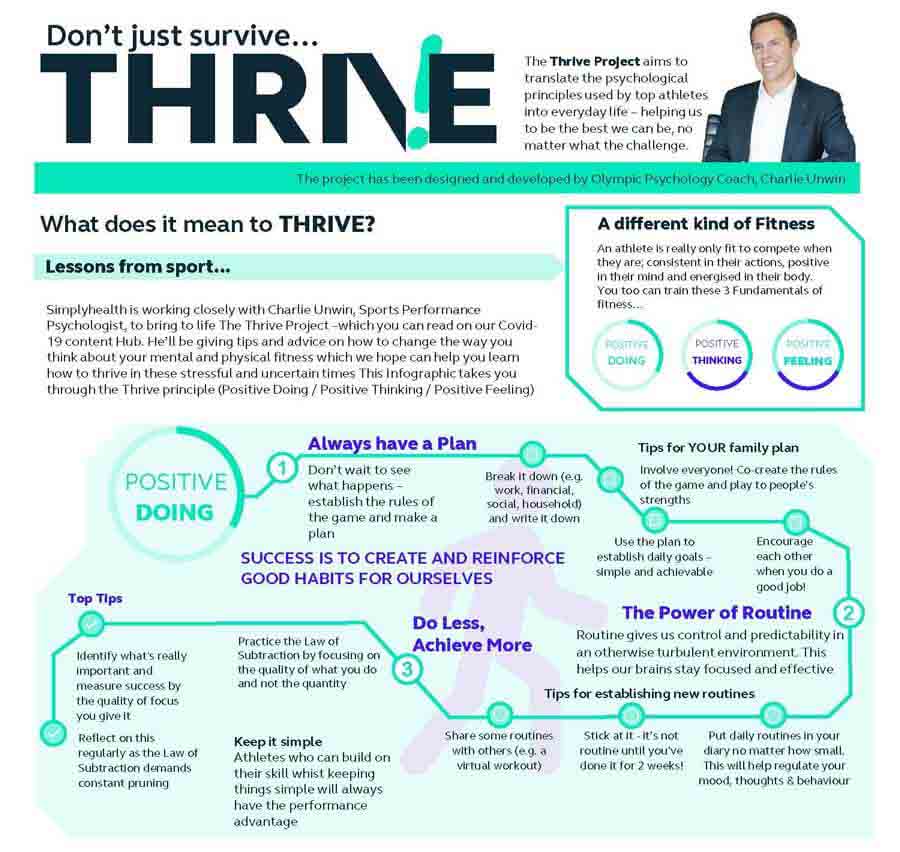The Thrive Project
Part 1
Positive Doing
Healthy Living > The Thrive Project > Part 1: Positive Doing
Short on time? Take it offline.
We've put all of Charlie's thoughts and insight into an easy step-by-step infographic. A PDF one. One you can download and keep going back to. Not as much detail as the articles, but it'll get you thriving!
Click the link to download the PDF of The Thrive Project by Charlie Unwin.
We will know we have been successful when… We have created and reinforced good habits for ourselves.

Don't just survive... THRIVE
The Thrive Project aims to translate the psychological principles used by top athletes into everyday life - helping us to be the best we can be, no matter what the challenge.
The project has been designed and developed by Olympic Psychology Coach, Charlie Unwin.
What does it mean to THRIVE?
Lessons from sport...
Simplyhealth is working closely with Charlie Unwin, Sports Performance Psychologist, to bring to life The Thrive Project - which you can read on our Covid-19 content hub.
He'll be giving tips and advice on how to change the way you think about your mental and physical fitness which we hope can help you learn how to thrive in these stressful and uncertain times. The infographic PDF takes you through The Thrive Project principle (Positive Doing/Positive Thinking/Positive Feeling).
This material may contain links to other websites operated by third parties. It is the responsibility of third parties to ensure such material and websites comply with all relevant laws and regulations. To the maximum extent permissible by law Simplyhealth disclaims all responsibility for such websites.